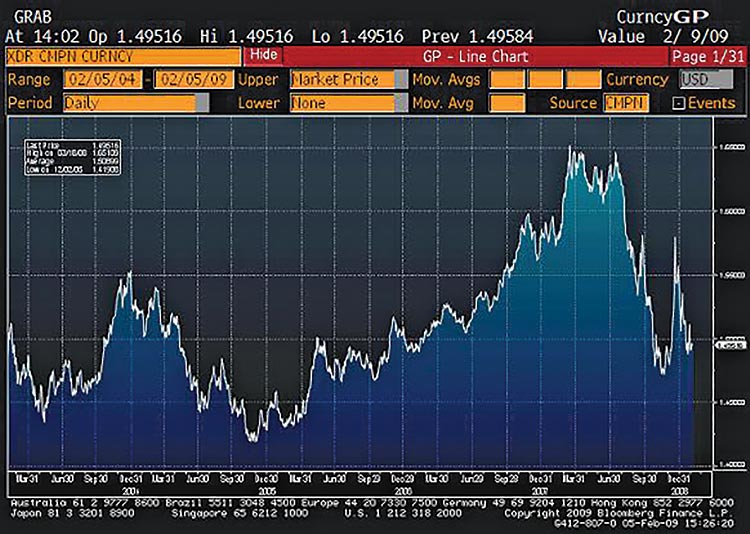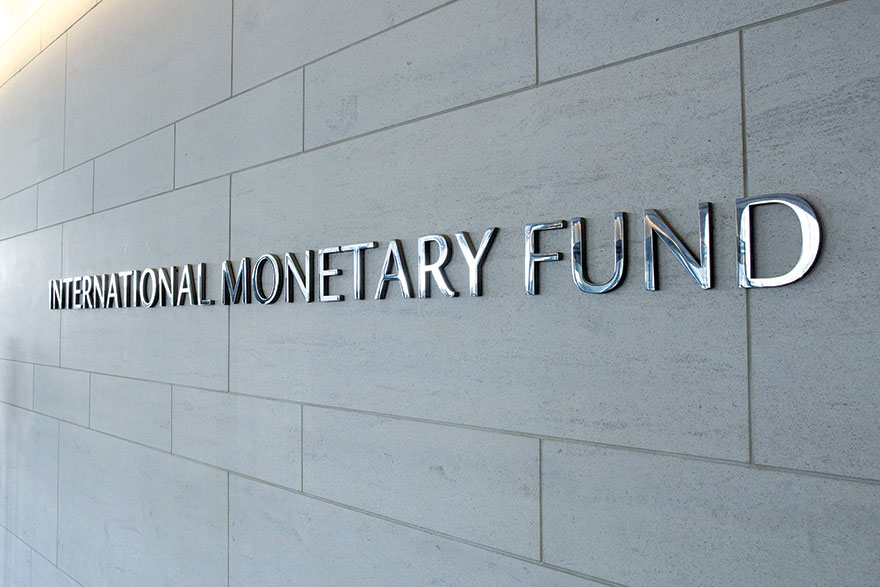The approximately 890 million dollars’ worth of special drawing rights received by Serbia could be used to fortify foreign exchange reserves, preserve the stability of the financial system, cover budgetary needs or pay off debts ahead of repayment deadlines. And judging by the announcements of the Finance Ministry, Serbia will opt for the latter option
August 2021 saw the completion of the largest general allocation to date of so-called Special Drawing Rights (SDRs) – supplementary foreign exchange reserve assets that are defined, maintained and issued by the International Monetary Fund – worth 456.5 billion SDRs ($650 billion).
The figure of $650 billion directed in the form of SDRs will help boost foreign exchange reserves and strengthen confidence in, and the resilience of, the global economy, as well as enabling countries to secure fiscal measures to emerge from the COVID-19 pandemic.
The IMF has made the general allocation of SDRs to all member countries (190) on the basis of the established rule, in proportion to the level of their national quotas in the IMF, which means that the highest quotas – of around 375 billion dollars – were received by the richest countries that need them the least. Countries with growing economies and developing countries have been allocated $274 billion. Those faring the worst were the poorest countries with the lowest quotas, as has always been the case to date. They received only 21 billion dollars, or around three per cent of total SDRs issued, despite needing SDRs and other financial resources the most and despite having seen their debts grow to a massive total of around 750 billion dollars.
The IMF allocated 627.6 million SDRs to Serbia, which totals approximately 890.2 million dollars, on the basis of the country’s quota, which amounts to 0.14% of all quotas. The Serbian government will decide whether and how to spend the allocated SDRs, which can be used to fortify foreign exchange reserves, make conversions to other currencies, preserve the stability of the financial system, cover budgetary needs or repay some more expensive debts before they mature.
Although an appeal was made for rich countries – which received almost 400 billion dollars in the latest distribution of SDRs – to renounce at least a quarter of that amount to help poor countries overcome the consequences of the pandemic and conduct universal vaccination programmes, no concrete agreements were reached
According to an October 2021 statement given by the new IMF Resident Representative in Serbia (Yulia Ustyugova), Serbian officials have already been shown how to “evaluate the macroeconomic impact of withdrawing these funds and how this could reflect on the sustainability of debts”, and the finance minister then announced that Serbia will use part of the received SDRs to repay obligations on foreign debts that reach maturity in 2022.
The COVID-19 pandemic, and the global economic crisis that it caused in 2020, led to the instigating of negotiations on a large issuance of SDRs by the IMF. The U.S. presidential elections of late 2020 resulted in victory for Joseph Biden, and his administration – unlike Trump’s – didn’t oppose the expanding of the IMF’s resource base through the extensive allocation of SDRs. At that time, another argument emerged favouring the issuing of SDRs, when the World Health Organization opted for the course of general vaccination, which demands major financial resources. It was impossible for this problem to be solved by developing countries, particularly the poorest ones, despite the IMF attempting to “help” these countries through affordable financial assistance.
The world’s richest countries (primarily the G7 countries) considered the issue of “austerity” and helping the “poor South” to implement universal vaccination programmes, in which a huge number of people need to be vaccinated in countries that don’t have the money to do so. The IMF and G7 calculated that approximately 100 billion dollars needed to be collected for this kind of “humanitarian assistance”, but they failed to reach any agreement. It was thus decided to assist these countries in the “least painful way”, which meant approving new large allocations of SDRs and their dissemination.

An appeal was made for rich countries – which received almost 400 billion dollars in the latest distribution of SDRs – to renounce at least a quarter of that amount to help poor countries overcome the consequences of the pandemic and conduct universal vaccination programmes. However, that appeal was left without a response, with no concrete agreements reached on the mobilisation of 100 billion dollars.
However, IMF Managing Director Kristalina Georgieva received G20 support in mid-October 2021 to form a new Trust that will enable wealthy IMF member countries to donate their share of the newly formed SDRs reserves for emergencies to the large number of countries that require help. Writing in a joint statement, financial officials of the G20 countries supported the new Resilience and Sustainability Trust and called on the IMF and the World Bank to “collaborate closely” on the development and implementation of funding under the scope of the new Trust.
The formation of the Trust is intended to solve the problems of the many poor and middle-income countries that have been hit hard by the COVID-19 pandemic, providing them without sufficient funds to prepare for and tackle extreme weather events. Georgieva expects developed economies to reach the goal of transferring about 100 billion dollars of the new SDR allocation to poor countries.
SDRs are distributed by the IMF to the central banks of member countries, which can only use them among themselves and another 15 international financial institutions (prescribed holders). Countries that intend to utilise SDRs can replace them with “freely usable currencies”, i.e., the world’s five most important currencies that comprise the basket of SDRs currencies, or to find an exchange partner among those countries, and it should be expected that the U.S. will buy the most SDRs. The basket now consists of the U.S. dollar (41.73%), the euro (30.93%), the Chinese renminbi (10.92%), the Japanese yen (8.33%) and the British pound sterling (8.09%). The value of SDRs is determined on a daily basis according to the exchange rate market and is published on the IMF website (one SDR was worth $1.42 in October 2021).
In order for SDRs to play a greater role in the international monetary system, it is necessary to secure numerous preconditions, to conduct regular allocations and those that are significant in scope, while one of the most important preconditions is to more strongly develop the private SDR market, i.e., for central banks to conduct transactions with private holders in SDRs
The IMF assigns members countries interest on its SDRs holding through the net cumulative allocation of these reserve assets (through which rich countries actually subsidise poor countries, lending them funds at extremely low interest rates), while the member country pays the same amount in charges on SDRs holdings below this allocation, which at present amounts to 0.050%. If, for example, the entire SDR quota of 890 million dollars received by Serbia was to be exchanged for one of the base currencies, Serbia would pay the IMF approximately 446,000 dollars in the name of costs, as it would have a shortfall of SDRs.
SDRs are actually a form of supranational “non-cash money”, which the IMF has the exclusive right to issue and which can only be used for special purposes. This new artificial monetary reserve currencies are called “special” because they don’t have the characteristics of a loan. In contrast to gold and banknotes, SDRs are an artificial form of currency that doesn’t exist physically, but rather only represents accounting money and is not acquired by any payments made by countries to the IMF in national or other currencies, which means that they have the characteristics of a gift.
SDRs are assets that can be used to eliminate a balance of payments deficit in the same way as gold or reserve currencies, which is why they are colloquially referred to as “paper gold” and have the role of a “world currency” that’s fictitious and artificially created as a means of payment in international financial transactions.
So, any country can save, gift or exchange an SDR, which automatically becomes “money” when it is exchanged for a hard currency. For now, SDRs cannot be used to carry out regular trade transactions or make investments.
In order for SDRs to play a greater role in the international monetary system, it is necessary to secure numerous preconditions, to conduct regular allocations and those that are significant in scope, while one of the most important preconditions is to more strongly develop the private SDR market, i.e., for central banks to conduct transactions with private holders in SDRs.
BY DR DEJAN JOVOVIĆ, Scientific Advisor – Expert on International Finances and full member of the Scientific Society of Economists of Serbia (NDES)
